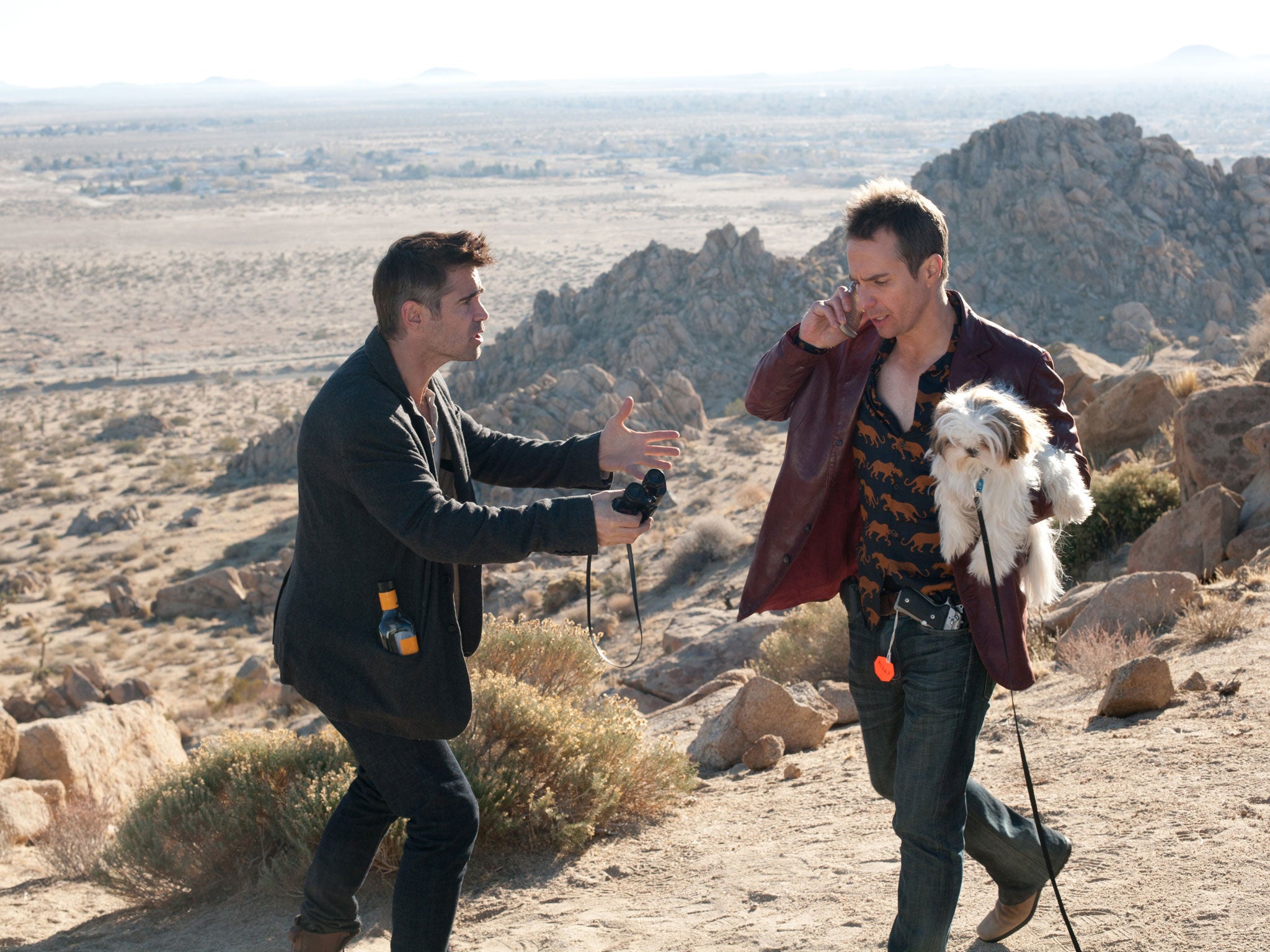IoS film review: Seven Psychopaths
Until it slips its leash, Martin McDonagh's shaggy dog story is howling good fun

Your support helps us to tell the story
From reproductive rights to climate change to Big Tech, The Independent is on the ground when the story is developing. Whether it's investigating the financials of Elon Musk's pro-Trump PAC or producing our latest documentary, 'The A Word', which shines a light on the American women fighting for reproductive rights, we know how important it is to parse out the facts from the messaging.
At such a critical moment in US history, we need reporters on the ground. Your donation allows us to keep sending journalists to speak to both sides of the story.
The Independent is trusted by Americans across the entire political spectrum. And unlike many other quality news outlets, we choose not to lock Americans out of our reporting and analysis with paywalls. We believe quality journalism should be available to everyone, paid for by those who can afford it.
Your support makes all the difference.Film buffs know Martin McDonagh as the writer-director of In Bruges, the most wickedly well-written and snappily directed thriller debut in years − it won the 2009 Bafta for Best Original Screenplay − but before the movies he took the theatre world by storm. His two trilogies of plays, set in the west of Ireland and the Aran Islands, were modern deconstructions of the works of John Millington Synge. They took the wild and amoral milieu of Synge's Playboy of the Western World, and played about with it, conjuring a community where, for instance, food could be bought at the local shop for a currency of news and gossip alone. The results were surreal and funny, if a touch too clever by half: McDonagh seemed keener on playing games with the possibility of theatre than evoking strong dramatic emotions.
You could accuse Seven Psychopaths of something similar, if only you could draw breath long enough. From the first scene, a meeting between two hitmen with a shockingly explosive climax, McDonagh pitches you into a frenzy of stories. We meet a professional dog-napper called Billy (Sam Rockwell) and his partner in crime, Hans (Christopher Walken). We're shown a nasty, dog-loving gangster, Charlie (Woody Harrelson), who's first seen intimidating a plump, weeping Sharice (Gabourey Sidibe from Precious) who has managed to lose Charlie's shih-tzu to Hans and Billy.
At the centre of the film is Billy's professional writer pal Marty (Colin Farrell), who is trying to write a screenplay entitled Seven Psychopaths. But he's blocked because "I just don't wanna do another Hollywood movie about guys with guns in their hands". He's keen, these days, on peace and love. He toys with the idea of a Buddhist psychopath. Billy, the dog-napper, tries to help by suggesting some possible stories.
One is a tale of revenge involving a scary Quaker preacher stalking the man who killed his daughter. Another involves a Vietnamese guy, in a Catholic priest's dog-collar, in a hotel room with a half-naked hooker. A small-ad in the paper, soliciting for real-life psychopaths with stories to tell, pulls in a grizzled ex-serial killer called Zachariah (Tom Waits) with another story about mayhem, arson and homicide. Meanwhile, Charlie the gangster is getting nearer to the guys who stole his shih-tzu. And there's a new threat out there, from a killer who flicks the Jack of Diamonds card on the body of his victims.
All these hares are soon racing around agreeably. You're dimly aware that several other films are being referenced here: Seven Samurai in the title, Pulp Fiction in the banal conversation of two hitmen, No Country for Old Men in the awkward confrontation between a killer and his victim. The excellent score is by Joel and Ethan Coen's favourite composer, Carter Burwell. You feel in good company. You're happy to go along with the intertwining stories, which are starting to cohere. Alas, McDonagh is too Postmodern an artist to leave us with the comforts of a straight narrative. A dream sequence throws the characters in the air and suggests what might happen to them, as if they don't matter to their creator. The stories we've been following are given alternative endings. Marty (and behind him, writer-director Marty McDonagh) wonders where might be a good place for the climactic shootout. (The audience replies, "Don't ask us, tell us! What is this – The French Lieutenant's Woman?")
Watching how the film pans out is actually quite fun; we still root for Marty and Billy and Hans despite feeling the wind has been taken out of the movie's sails. It's always watchable because McDonagh is a talented film-maker. He loves having his camera creep up on sights the audience would rather not see. In one scene, a character shyly extends a hand to her lover only to have it rejected, while nearby a man with daggers through both his hands is burning to death, and half a dozen rabbits nibble unconcernedly in the foreground. Tarantino would be impressed.
McDonagh is good with actors too: Farrell plays the film's only non-mad role with wide-eyed bewilderment, Rockwell is reliably off the rails, Harrelson can turn on a dime from sentimental to vicious, and Christopher Walken plays Christopher Walken better than he has in ages. Seven Psychopaths will keep fans of In Bruges happy, without ever approaching that film's depth or interest in human psychology.
Join our commenting forum
Join thought-provoking conversations, follow other Independent readers and see their replies
Comments